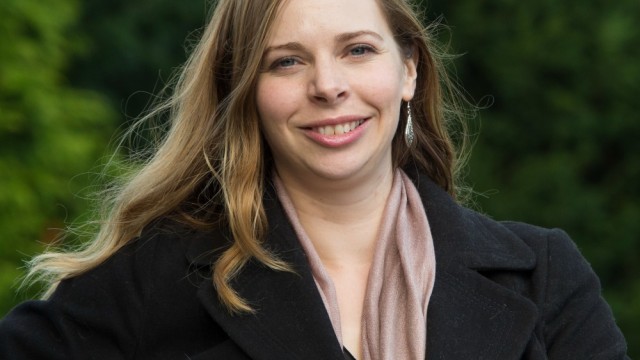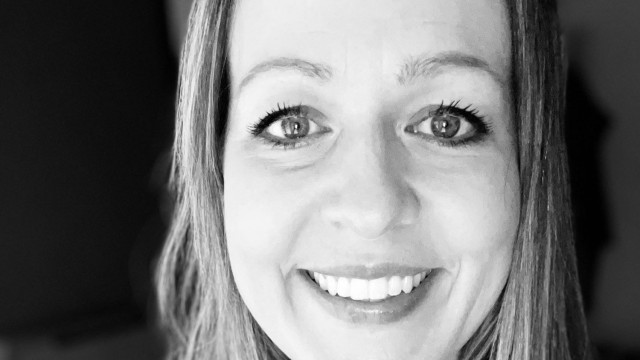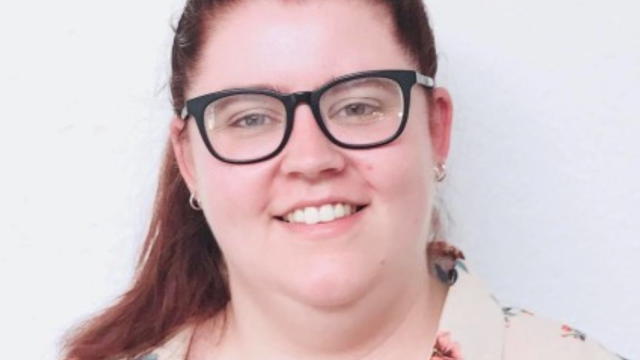
- Clinical Psychology
PsychD Clinical Psychology
Our professional clinical psychology training is based on a unique combination of psychological theory, research and clinical practice within the NHS, delivered in an inclusive and supportive environment.
4,138+ people have created a bespoke digital prospectus
Why choose this
programme?
- Benefit from our applied and policy-orientated teaching and research which has a strong theoretical context.
- Immerse yourself in clinical placements in a variety of settings, gaining the skills to work with a range of clients in different contexts.
- Upon successful completion of this course, gain the academic and practice requirements needed to register with the Health and Care Professions Council (HCPC) to work as a clinical psychologist.
Statistics
100%
Of our psychology research graduates are in employment or further study within 15 months of graduating (Graduate Outcomes 2025, HESA)
Top 20 for research outputs
The University of Surrey is ranked in the top 20 for the quality of our research outputs (REF 2021)
33rd for research quality
The University's overall research quality ranking has risen by 12 places to 33rd in the UK (REF 2021)
What you will study
You will begin your training with six weeks of teaching where you’ll be introduced to the NHS and will gain a solid foundation to working psychotherapeutically in clinical settings. This first teaching block will introduce you to using cognitive behavioural therapy and systemic/family therapy, to prepare you for your first placement. You will then start your clinical practice, spending two-and-a-half days a week on clinical placement, two days at the University for teaching or research, and half a day completing individual study. This pattern will largely continue for your three years of full-time training.
During this time, you’ll build up the breadth and depth of your clinical skills and knowledge in applied psychology, therapeutic skills and leadership competencies. The programme embeds inclusion, equality and diversity at the heart of all aspects of the course, promoting inclusion and anti-discriminatory practice, enabling trainees to work with people from all backgrounds.
Alongside your teaching and placements, you’ll conduct research in a related area. Some topics our current students are researching include:
- Family accommodation to eating disorder behaviours in young people and associations with parents’ distress intolerance
- The experience of birth trauma in BAME families
- Sexual minority stress and outcomes in IAPT services
- The experience of relational trauma in adults with learning disabilities.
Clinical placements
As part of your training you will complete five placements in a variety of clinical settings. In your first year, you will complete a year-long core adult placement, followed by six-month placements in the second and third year working with the following groups:
- Children and their families
- Individuals with learning disabilities
- Older people.
In your third year of training you will also complete a specialist six-month placement.
Course length
This PsychD programme can take up to four years to complete, with most students completing it in three years.
Professional recognition
PsychD - British Psychological Society (BPS)
Accredited against the requirements for the Graduate Basis for Chartered Membership (GBC) of the British Psychological Society (BPS).
PsychD - Health and Care Professions Council, the (HCPC)
Approved by the Health and Care Professions Council (HCPC) for the purpose of providing eligibility to apply for registration with the HCPC as a practitioner psychologist.
PsychD - British Association for Behavioural and Cognitive Psychologies (BABCP)
Accredited by BABCP as providing all the necessary training so that on graduation from Level 2 courses, individuals will have received the training required to fulfil BABCP's Minimum Training Standards.
Promoting NHS values
This course promotes the NHS values which are enshrined within the NHS constitution. We are dedicated to recruiting graduates whose individual values and behaviours align to those of the NHS.
These NHS values are aligned with the programme's values:
- Integrity, honesty, compassion and empathy
- Inclusive practice across the lifespan and across settings
- Commitment to innovation, improvement and creativity
- Reflexive, interdisciplinary, evidence-based practice
- Public and patient involvement in learning
- Commitment to adult models of learning with an ongoing pledge to excellence
- Effective communication and interpersonal skills.
Commissioned by
This programme is commissioned by two specific HEE regions: South Central and London, and successful applicants are employed by the NHS. As such, the demands of the commissioners regional services, alongside the demands of the registrant body, Health and Care Professions Council, and the British Psychological Society’s curriculum, organise our workforce training.
Owing to having the foundation level of systemic training embedded within the programme, the Association for Family Therapy and Systemic Practice requirements are also adhered to. The British Association for Behavioural and Cognitive Psychotherapies has also accredited the programme for a Level 2 pathway, and where relevant, its requirements are observed.
Teaching
You will be taught through a combination of clinical placements, seminars, research and individual study.
Assessment
- Throughout your training you will complete a number of academic assignments, including a service evaluation or audit project (typically within the NHS) and reports of clinical activity.
- As part of developing your research skills you’ll undertake two pieces of research (typically a literature review and an empirical paper) under the guidance of our experienced supervisors belonging to one of our research groups: Social Justice and Health Inequalities; Applied Clinical and Health Psychology; Pedagogical Research. These two papers will be examined orally through a viva examination with at least two examiners in your third year of training.
Location
This course is based at Stag Hill campus. Stag Hill is the University's main campus and where the majority of our courses are taught.
Research themes
Our research investigates mental health, wellbeing and recovery, with a focus on:
- Applied clinical and health psychology, including understanding the psychological support needs and developing interventions for the perinatal period, for individuals with long term conditions and their families, individuals with drugs, alcohol and addictive behaviours and supporting ageing well with lifelong conditions and disability.
- Social justice and inequalities in mental health, including ethnic inequalities in digital healthcare, inclusion in clinical psychology training, and the impact of adversity on young people.
Research groups
Throughout your studies you’ll be assigned a supervisor for each clinical area, which includes researchers from the School of Psychology and external clinical psychologists working in the NHS and elsewhere. Staff have expertise in pure and applied research, and knowledge of a wide range of quantitative, qualitative and mixed methods approaches. Many have strong links with the NHS, social care organisations and charities.
Your supervisors will give you academic guidance and tuition, helping you develop your skills in experimental design, conduct and analysis. They’ll also give you pastoral support and advice, referring you to more specialist services where necessary.
Supervisors may include:
Research support
The professional development of postgraduate researchers is supported by the Doctoral College, which provides training in essential skills through its Researcher Development Programme of workshops, mentoring and coaching. A dedicated postgraduate careers and employability team will help you prepare for a successful career after the completion of your PhD.
Progress reviews
You will have research supervision meetings with your supervisors every month to support your progression. Every six months you will have an opportunity to reflect on and review your research progress with your supervisors. These meetings provide an opportunity to discuss successes and challenges and set targets for the next six months. These reviews are monitored by a postgraduate research director and recorded on your student record.
Facilities
Our psychology facilities will give you access to the latest equipment, including a six-room virtual reality suite to simulate real-life scenarios, a magnetic resonance imaging (MRI) scanner, where you can perform neuroimaging and observe the brain in action, and two observation laboratories.
With our equipment you can conduct experiments using electroencephalography (EEG), transcranial direct current stimulation (tDCS) and transcranial magnetic stimulation (TMS). You'll also be able to monitor eye tracking and physiological measures such as earlobe temperature, heart rate and galvanic skin response, in our laboratories and remotely, using mobile data loggers.
On successful completion of this PsychD, you’ll have the academic and practice requirements needed to register with the Health and Care Professions Council to work as a clinical psychologist. You’ll also be eligible for chartership with the Division of Clinical Psychology.
We’re accredited by the British Association for Behavioural and Cognitive Psychotherapies. On successful completion of the programme, you’ll have the knowledge needed for Level 2 accreditation. Some trainees who have completed specific clinical placements will be able to meet all the Level 2 accreditation requirements and will be able to register as a cognitive behavioural therapist as well as a clinical psychologist.
We are also accredited at Foundation level with the Association for Family Therapy and Systemic Practice. This process is embedded within the programme, therefore on successful completion of the doctorate you’ll also be eligible for this qualification. We are currently working towards intermediate level for a small number of trainees.
For those interested in clinical neuropsychology we provide all trainees with the knowledge component to gain recognition of prior learning for the University of Bristol PG Diploma in Clinical Neuropsychology. For a small number, we also offer additional clinical experiences that can be utilised for recognition of prior experience onto the course for a maximum of one year. Completion of the Bristol’s diploma course leads to access to the British Psychological Society’s Specialist Register of Clinical Neuropsychologists.
As part of your training you will complete five placements in a variety of clinical settings. In your first year you will complete a year-long core adult placement, followed by six-month placements in the second and third year working with the following groups:
- Children and their families
- Individuals with learning disabilities
- Older people.
In your third year of training you will also complete a specialist six-month placement.
UK qualifications
Applicants are expected to:
- Be eligible for Graduate Basis for Chartered membership of the BPS (see the Eligible for Graduate Basis for Chartership section).
- Hold a minimum of a 2:1 degree in psychology or suitable equivalent (see qualifications section).
- Within the last three years at the point of application, demonstrate at least one year's (whole time equivalent) experience of applying psychological principles in clinically relevant settings (see experience section).
- Nominate two referees who can provide separate clinical and academic references (see clinical referees section).
- Meet the English language requirements for this programme.
- Hold a current, valid UK driving licence and have access to a vehicle for work purposes. Shortlisted candidates need to be able to present their full, valid UK photocard driving licence on the day of the interview (see interview days section).
- Have the right to work in the UK and settled status, and be eligible for Home Fees, as the programme is training professionals for the NHS (see funding section).
Entry to this programme is conditional upon a satisfactory check by the Disclosure and Barring Services (DBS), formerly known as the Criminal Record Bureau (CRB).
We particularly welcome applications from candidates from groups that are under-represented amongst clinical psychologists and from candidates who have followed non-traditional career paths.
English language requirements
IELTS Academic: 7.0 or above (or equivalent) with 6.5 in each individual category.
Applicants who are required to provide an English language test must send evidence to the Clearing House with their application. Failure to provide this evidence will mean your application cannot be considered.
These are the English language qualifications and levels that we can accept.
If you do not currently meet the level required for your programme, we offer intensive pre-sessional English language courses, designed to take you to the level of English ability and skill required for your studies here.
Selection process
Selection is based on applicants:
- Meeting the expected entry requirements and providing all relevant documents including a satisfactory research proposal
- Being shortlisted through the application screening process
- Completing a successful interview
- Providing suitable references.
Fees
NHS funding was available to UK/EU postgraduate students who met NHS funding requirements for 2023, so these students were therefore not personally liable for payment of tuition fees. No self-funding applicants are currently being considered. Find further information on the Clearing House website.
Current trainees are full-time salaried employees of the health service and have annual leave and other benefits in line with usual NHS entitlements. On entry to the programme all trainees commenced on the first spine point of Band 6 of the Agenda for Change pay scales.
Travelling expenses are currently paid for travel to placement, and University fees are currently paid directly by the NHS.
Additional costs
There are additional costs that you can expect to incur when studying at Surrey.
How to apply
Applications should be made via the Clearing House for postgraduate courses in clinical psychology.
About the University of Surrey
Need more information?
Contact our Admissions team or talk to a current University of Surrey student online.
Code of practice for research degrees
Surrey’s postgraduate research code of practice sets out the University's policy and procedural framework relating to research degrees. The code defines a set of standard procedures and specific responsibilities covering the academic supervision, administration and assessment of research degrees for all faculties within the University.
Download the code of practice for postgraduate research admissions (PDF).
Terms and conditions
When you accept an offer to study at the University of Surrey, you are agreeing to follow our policies and procedures, student regulations, and terms and conditions.
We provide these terms and conditions at the offer stage and are shown again at registration. You will be asked to accept these terms and conditions when you accept the offer made to you.
View our generic registration terms and conditions (PDF) for the 2025/26 academic year, as a guide on what to expect.
Disclaimer
This online prospectus has been published in advance of the academic year to which it applies.
Whilst we have done everything possible to ensure this information is accurate, some changes may happen between publishing and the start of the course.
It is important to check this website for any updates before you apply for a course with us. Read our full disclaimer.










